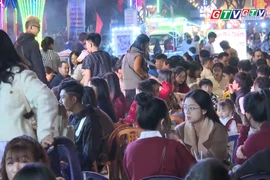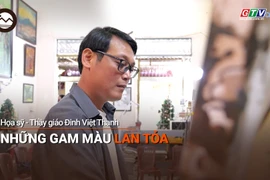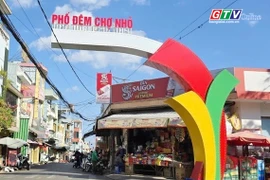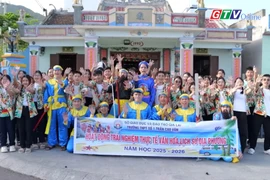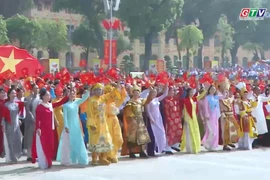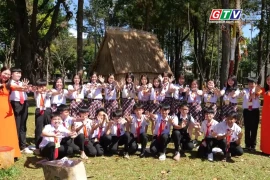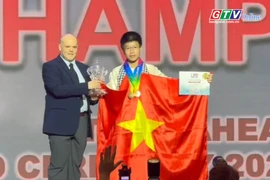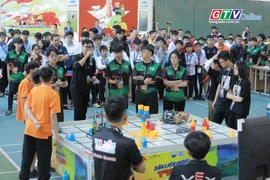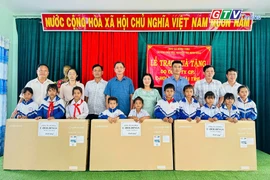From the remote villages of the Central Highlands, many ethnic minority National Assembly deputies have been entrusted by voters with significant responsibilities. They are not only the voices representing ethnic minority communities, but also a source of pride, with outstanding figures such as Y Ngông Niê Kđăm and Ksor Phước having served as Chairmen of the National Assembly’s Ethnic Council.
After the success of the August Revolution, joining the people of Đắk Lắk in seizing power, Dr. and teacher Y Ngông Niê Kđăm became a pioneering figure and a steadfast spiritual pillar for the ethnic communities of the Central Highlands.
During the first general election of the Democratic Republic of Vietnam in early 1946, the 24-year-old Y Ngông earned the trust of the people and was elected as a National Assembly deputy (NA deputy) for the first legislature. From that moment, he became one of the rare ethnic minority deputies to serve in nine consecutive National Assembly terms, leaving a profound mark with his intellect, courage, and unwavering dedication to his people and the nation.
Leafing through her father's keepsakes, Linh Nga Niê Kđăm feels memories flooding back. "My father told us many stories, and he also wrote about them in his memoirs," she said.
In his memoirs, Y Ngông Niê Kđăm recounted a memorable moment at the first session of the National Assembly’s inaugural term: “I am Ê Đê, and I am very proud to have been elected to the first National Assembly of the Democratic Republic of Vietnam. I was anxious about the responsibility entrusted to me by my people and promised to fulfill my duties. After the general uprising, my people escaped slavery and were determined to follow the resistance to the end to protect our independence.”
From a passionate young man, Y Ngông Niê Kđăm later earned the trust to hold many important positions: Member of the National Assembly Standing Committee, Member of the State Council, Chairman of the National Assembly’s Ethnic Council—becoming a source of pride for the Central Highlands’ ethnic communities.
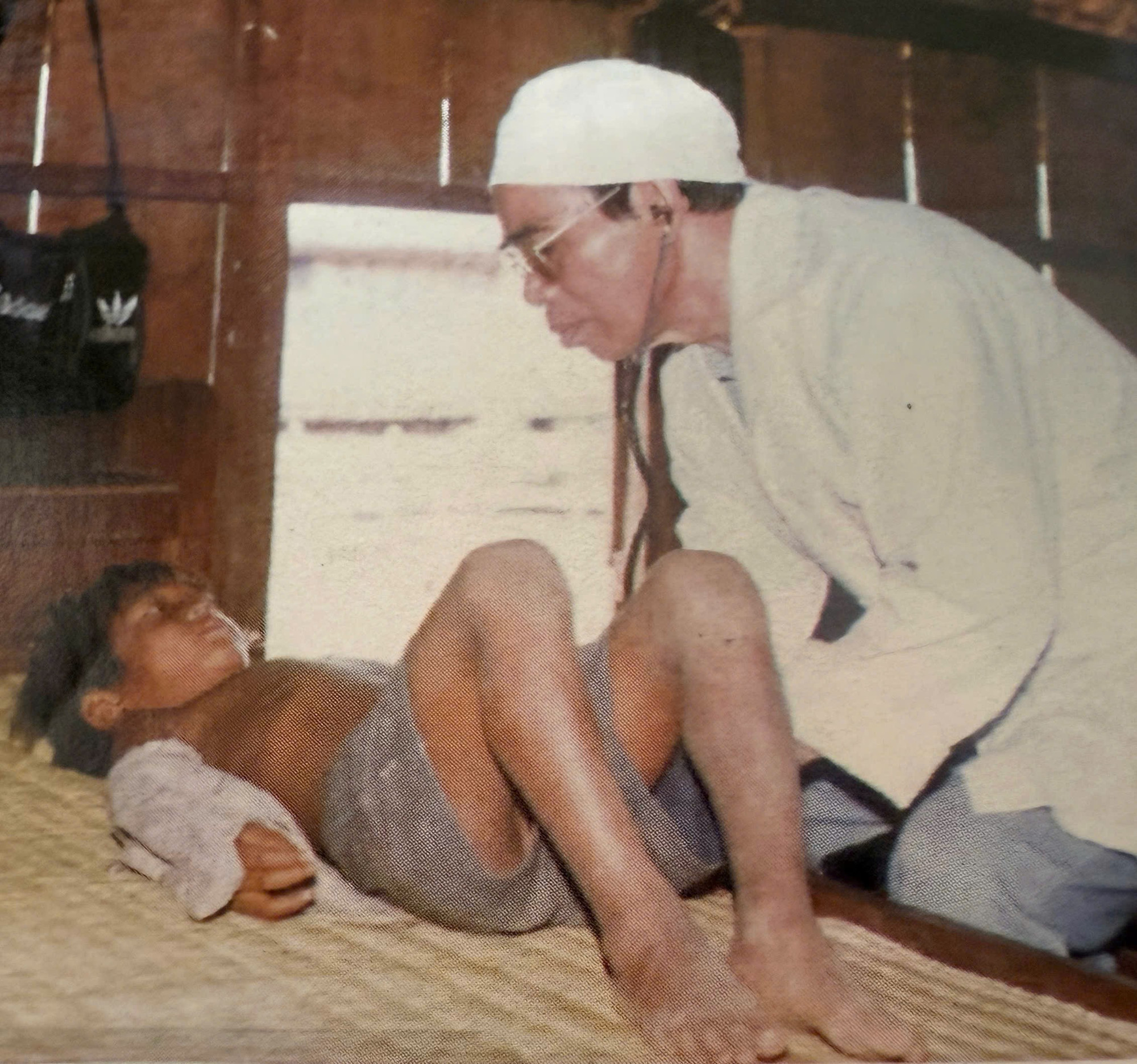
After nearly 30 years away from home for revolutionary activities, Y Ngông returned as a senior leader, yet his qualities as a son of the Central Highlands and his love for his people remained unchanged.
Many people in Đắk Lắk fondly recall Y Ngông’s contributions to the development of their villages. As Secretary of the Đắk Lắk Provincial Party Committee, he was approachable when visiting communes and villages. He communicated with locals in their native language, and they spoke with him as if he were family. He was simple and sincere, often staying to share meals with the villagers.
In the Central Highlands, Y Ngông Niê Kđăm is remembered as a leader close to the people and devoted to their well-being. In the 1980s, when the country faced many hardships and many villages in Đắk Lắk suffered from hunger, he could not hold back tears witnessing the poverty firsthand.
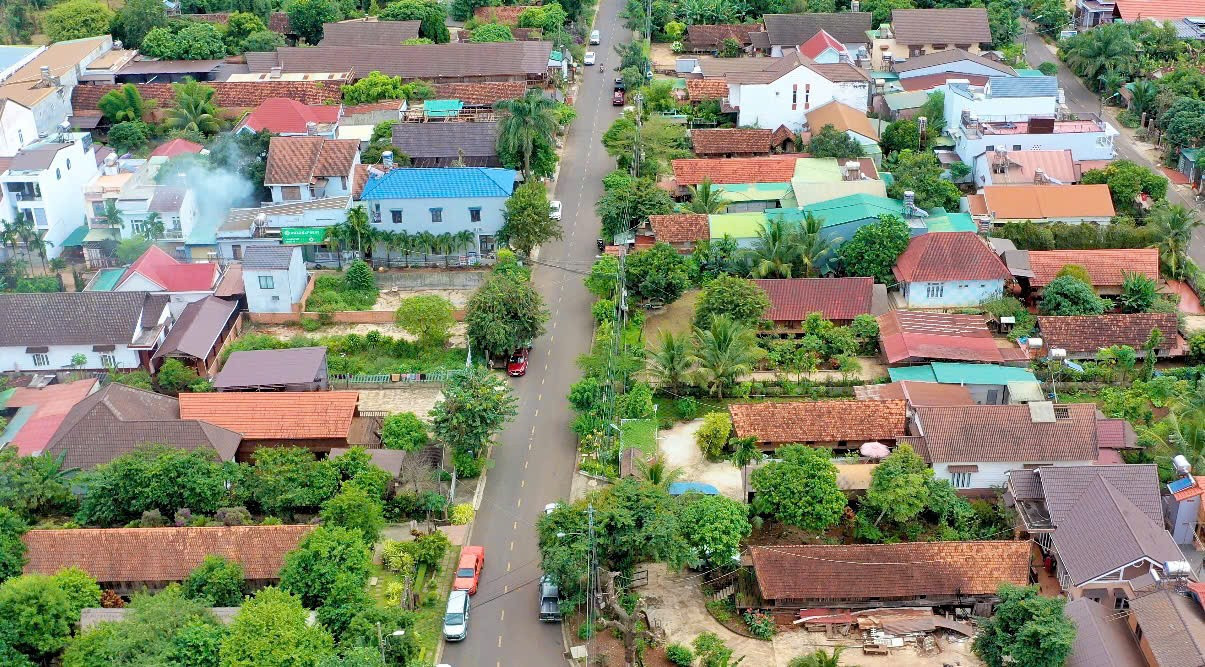
Moved by this hardship, he immediately discussed with provincial leaders ways to eradicate hunger and reduce poverty, launching a movement to boost food production. Recognizing that water was vital for the Central Highlands, he mobilized and focused all resources on developing irrigation. He personally joined villagers in expanding fields, digging canals, building dams, and constructing numerous irrigation works in the area.
With this vision, Y Ngông proposed a policy linking local people with state-run agricultural and forestry enterprises to cultivate coffee, opening a new economic direction for the Central Highlands. Thanks to this policy, thousands of ethnic minority households in Đắk Lắk achieved better living standards, and Y Ngông Niê Kđăm’s name became a symbol of transformation.
To this day, Y Blưn Mlô (Krông Ana commune, Đắk Lắk province) vividly remembers the policy that allowed locals to partner with agricultural and forestry enterprises to grow coffee, initiated by Y Ngông.
“We enjoy a prosperous life today thanks to the right policy. Previously, people had land but only practiced traditional farming, lacking technical know-how to increase productivity, so life was difficult.
When Mr. Y Ngông introduced this policy, we willingly contributed land to partner with enterprises to grow coffee and rubber. As a result, we gained access to modern cultivation techniques, and our lives have become increasingly prosperous and stable,” shared Y Blưn Mlô.
Y Ngông Niê Kđăm—a man as unpretentious and generous as the Central Highlands itself—was also known for his integrity, candor, and unwavering commitment to the people’s interests.
Linh Nga Niê Kđăm recalled a memorable incident: During a National Assembly session discussing the rampant deforestation by some state-run forestry enterprises, her father stood up and said bluntly: “I criticize the Government for its inadequate direction regarding mountainous and ethnic minority areas. The forestry enterprises cut down all the trees to sell, leaving nothing for the people; the forests are left barren. Is this what it means to ‘take the people as the root’?”
His words left the entire hall in silence. Then-Prime Minister Võ Văn Kiệt was deeply concerned and subsequently ordered a thorough investigation, strict punishment for violating forestry leaders, and reforestation efforts to restore the Central Highlands’ greenery.
Once again, Y Ngông Niê Kđăm demonstrated the courage of a representative who dared to speak out and fight for the people’s rights and the sustainable development of his homeland.
Visiting Đắk Lắk and seeing schools and roads named after Y Ngông, I am reminded of his memoirs: “As a young ethnic minority man from the Central Highlands... out of love for my people and my country, I joined the Party, followed Uncle Hồ, and embraced the communist ideal. I had the honor of serving as a National Assembly deputy continuously from the first to the ninth term, and in my life, I was personally taught by Uncle Hồ many times.”
Many still refer to Y Ngông as the “village elder NA deputy of the Central Highlands” for his participation in nine terms. Throughout his life, loyal to the Party and Uncle Hồ, Y Ngông educated and inspired his children to follow in his revolutionary footsteps.
Following in his father’s footsteps, Y Ly Niê Kđăm—former Deputy Secretary of the Provincial Party Committee and NA deputy for the 11th term—upheld the family tradition and became a respected representative in the eyes of voters.
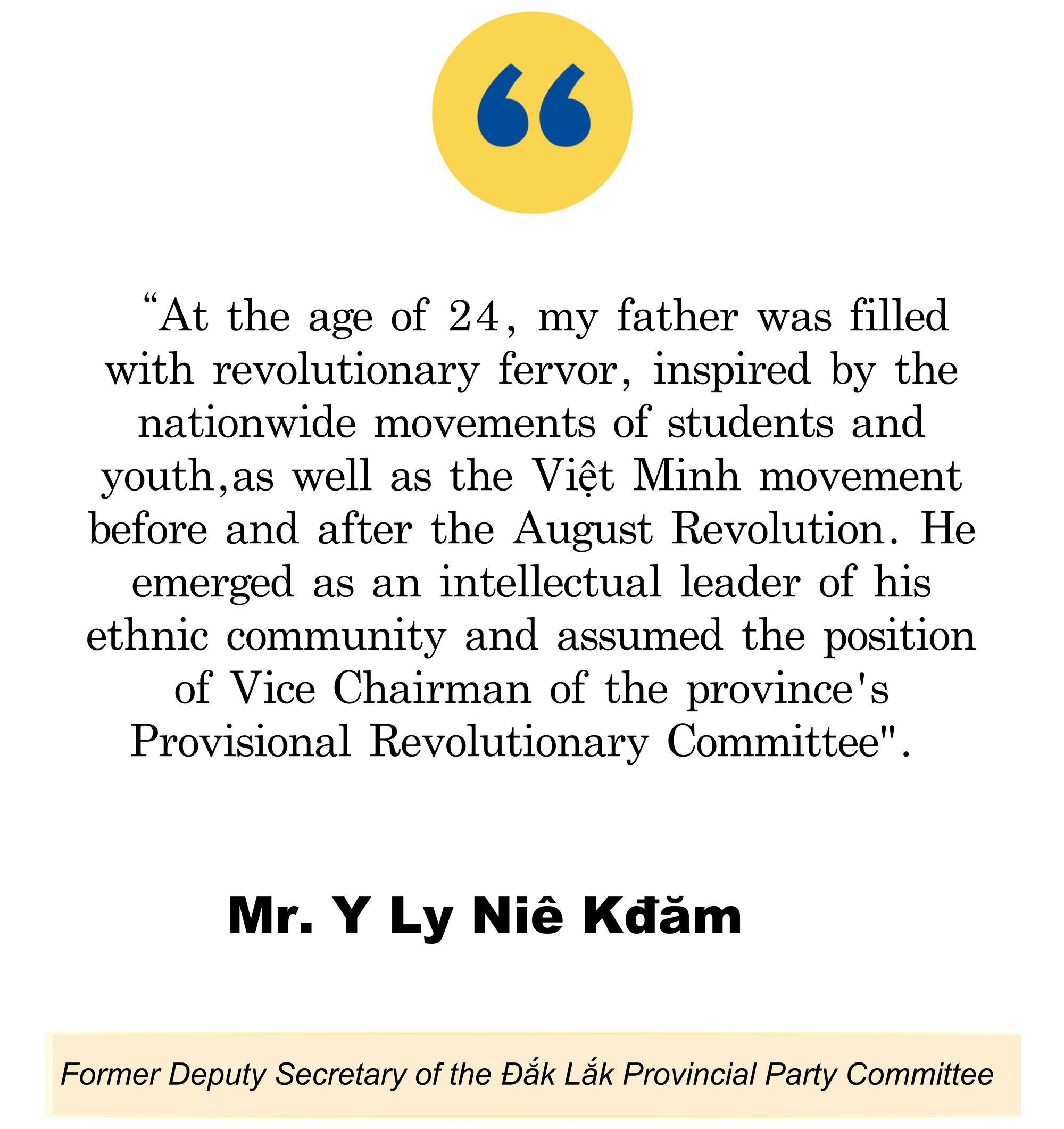
“On January 6, 1946, our father, with the trust of the ethnic communities, was elected as a deputy to the first National Assembly. He was also the only southern ethnic minority representative in the delegation honored to meet Uncle Hồ before the first session of the National Assembly,” Y Ly Niê Kđăm recalled with pride.
When mentioning the towering figures among ethnic minority NA deputies in the Central Highlands, one cannot overlook Ksor Phước—former member of the Party Central Committee, former Secretary of the Gia Lai Provincial Party Committee, who served four terms (X, XI, XII, XIII) as a National Assembly deputy and was also Chairman of the National Assembly’s Ethnic Council.
We visited Ksor Phước’s modest home on Tô Vĩnh Diện Street (Pleiku ward). In the cozy setting, the former Chairman of the National Assembly’s Ethnic Council slowly reminisced about his years in the legislature—a period he described as “unforgettable.”
He shared emotionally: “I am forever grateful to the Party, the State, the National Assembly, and the people for nurturing, educating, and training me to live and work for the nation and the people”.
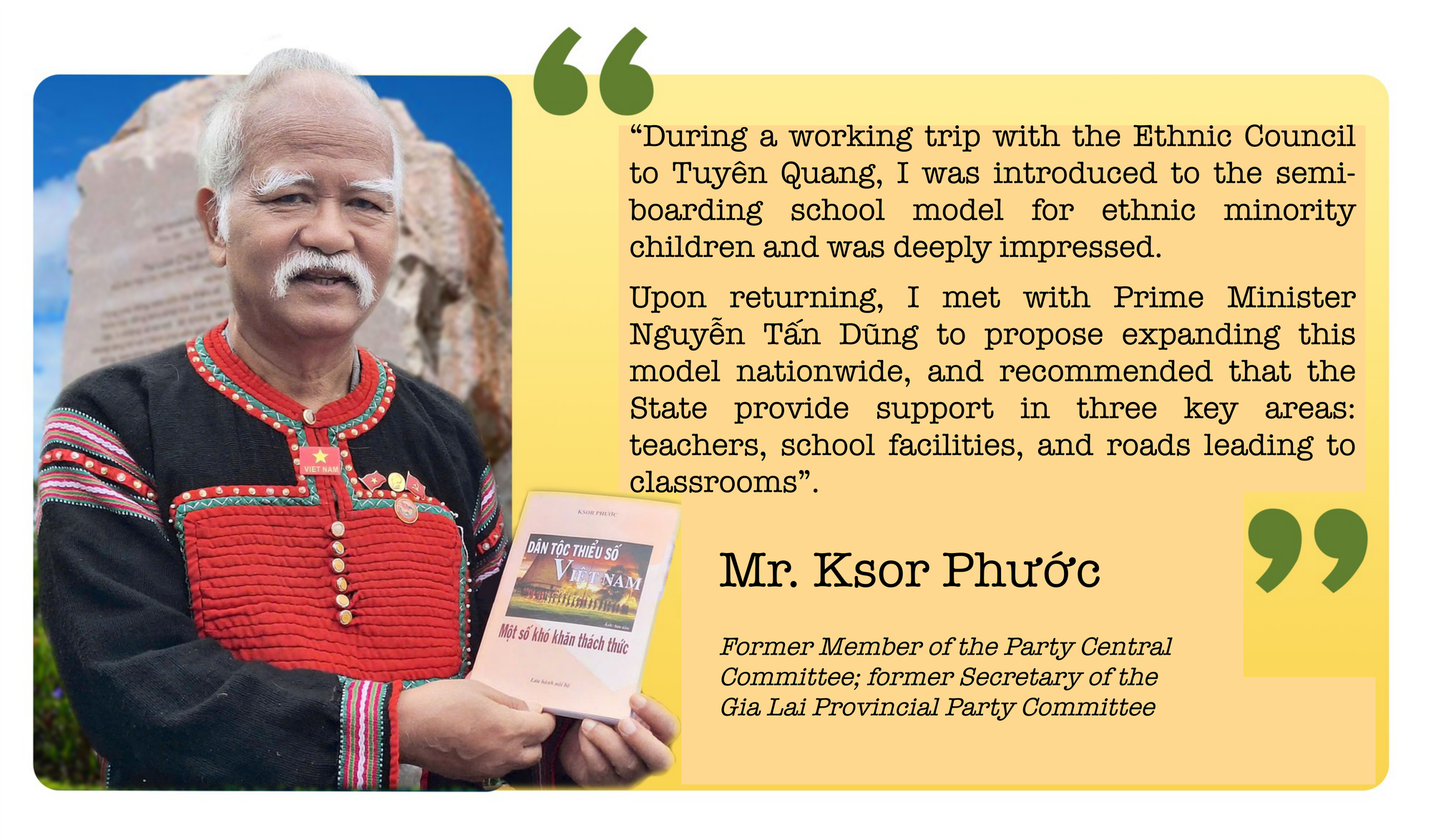
Not only was he a representative close to and for the people, but the revolutionary tradition also runs deep in his family. His daughter, Ksor H’Bơ Khắp, served as a National Assembly deputy for the 14th term. Carrying this responsibility, Ksor H’Bơ Khắp has always acted as a bridge between ethnic minority communities in Gia Lai and the Party and State, and vice versa.
In the legislature, she is always concerned about the lives of ethnic minority people and hopes the State will invest more in these areas so they can develop on par with more advantaged regions, while preserving their unique cultural identities.
In her daily life as a leader of the Gia Lai Provincial Police, she has contributed to the community by initiatives such as installing lights for farm vehicles and organizing driving tests and licenses for ethnic minority residents.
Y Vêng is known as the first woman from the Central Highlands to serve as Secretary of the Kon Tum Provincial Party Committee (former) and was a National Assembly deputy for three consecutive terms (X, XI, XII). She is always mindful that today’s generation, especially ethnic minority deputies, must continue the tradition of their predecessors, upholding unity and responsibility to help build their homeland.
Now, in her advanced years, Y Vêng maintains a simple, approachable lifestyle. She rarely speaks of her years in office, but simply advises: “As a representative of the people, whether the task is big or small, you must be dedicated and wholehearted. To earn the people’s trust, you must live sincerely, work for the people, and think of the people.”

For her, the greatest joy is seeing her children and grandchildren mature and continue to serve the nation and their people. Her eldest son, U Huấn, is currently an alternate member of the Party Central Committee, Standing Deputy Secretary of the Provincial Party Committee, Head of the provincial NA delegation, and Chairman of the Vietnam Fatherland Front Committee of Quảng Ngãi province, continuing the path chosen by his mother and previous generations.
From families like Y Ngông Niê Kđăm, Ksor Phước, to Y Vêng, ethnic minority National Assembly deputies have helped write golden pages in the history of the legislature, leaving a legacy not only through their contributions but also by guiding younger generations.
Their children, grandchildren, and today’s generation are continuing the path of their forebears, upholding trust, responsibility, and love for their villages and the nation. These deputies help ensure that the revolutionary spirit of the Central Highlands continues to flow, nurturing generations of National Assembly deputies who remain loyal, courageous, and dedicated to the people.


